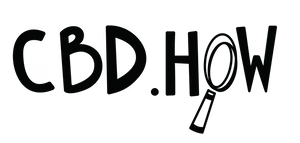The U.S. Food and Drug Administration issued warning letters to 15 companies for illegally selling products containing cannabidiol (CBD) in ways that violate the Federal Food, Drug, and Cosmetic Act (FD&C Act). The FDA also published a revised Consumer Update detailing safety concerns about CBD products more broadly. Based on the lack of scientific information supporting the safety of CBD in food, the FDA is also indicating today that it cannot conclude that CBD is generally recognized as safe (GRAS) among qualified experts for its use in human or animal food.
The FDA has previously sent warning letters to other companies illegally selling CBD products in interstate commerce that claimed to prevent, diagnose, mitigate, treat or cure serious diseases, such as cancer, or otherwise violated the FD&C Act.
The FDA continues to explore possible options for various types of CBD products to be lawfully marketed. This includes ongoing work to obtain and evaluate information to address outstanding questions related to the safety of CBD products while maintaining the agency’s rigorous public health standards.
The FDA plans to provide an update on its progress regarding the agency’s approach to these products in the coming weeks.
List of 15 CBD Companies
- Apex Hemp Oil LLC
- Bella Rose Labs
- CDRL Nutritional, Inc.
- Daddy Burt Hemp Co
- KOI CBD LLC
- Infinite Product Company LLLP DBA (Infinite CBD)
- Mr. Pink Collections, LLC
- Natural Native LLC
- Noli Oil, LLC
- Organix Industries, Inc. dba Plant Organix
- Private I Salon, LLC
- Red Pill Medical Inc.
- Sabai Ventures Ltd
- Sunflora, Inc./The CBD Store, LLC dba Your CBD Store
- Whole Leaf Organics, LLC
CBD is marketed in a variety of product types, such as oil drops, capsules, syrups, food products such as chocolate bars and teas, and topical lotions and creams. As outlined in the warning letters issued today, these particular companies are using product webpages, online stores and social media to market CBD products in interstate commerce in ways that violate the FD&C Act, including marketing CBD products to treat diseases or for other therapeutic uses for humans and/or animals. Other violations include marketing CBD products as dietary supplements and adding CBD to human and animal foods.
FDA Statement
All 15 CBD brands made claims that their products are intended for use in the cure, mitigation, treatment, or prevention of disease and/or intended to affect the structure or any function of the body.
Some of the claims were:
- “Although CBD doesn’t make people feel high like THC does, it’s causing quite a buzz among scientists, health professionals, and medical marijuana patients who are using CBD-rich products to treat a wide range of conditions – chronic pain, cancer, Crohn’s, diabetes, rheumatoid arthritis, PTSD, cardiovascular disease, anxiety, antibiotic-resistant infections, multiple sclerosis, schizophrenia, and more.”
- “CBD Defend contains CBD…associated with decreasing the risk for cancer development…fighting DNA damage and reversing manipulation at the cellular level.”
- “Extensive preclinical research and some clinical studies have shown that CBD has strong anti-oxidant, anti-inflammatory, anticonvulsant, anti-depressant, anti-psychotic, anti-tumoral (sic), and neuroprotective qualities. Cannabidiol can change gene expression and removal beta-amyloid plaque, the hallmark of Alzheimer’s, from brain cells.”
- “However, numerous clinical studies have revealed that CBD you [sic] can have a very impactful reaction against a wide variety of diseases such as multiple sclerosis, Alzheimer’s, anxiety, depression, and more.”
- “In addition to being used for people who suffer from epilepsy, this product has been shown to be therapeutically beneficial for a variety of other ailments as well.
- On your webpage titled “CBD Benefits” you state CBD
• “Inhibits cancer cell growth”
• “Treats psoriasis”
The FDA makes specific warnings:
The aforementioned products are offered for conditions that are not amenable to self-diagnosis and treatment by individuals who are not medical practitioners; therefore, adequate directions for use cannot be written so that a layperson can use them safely for their intended purposes. FDA-approved prescription drugs that bear their FDA-approved labeling are exempt from the requirements that they bear adequate directions for use by a layperson. However, your products are not exempt from the requirement that their labeling bear adequate directions for use, 21 CFR 201.100(c)(2) and 201.115, because no FDA-approved application are in effect for them. The introduction or delivery for introduction into interstate commerce of these misbranded drugs violates section 301(a) of the FD&C Act, 21 U.S.C. 331(a).
FDA Statement
We always recommend CBD companies to avoid making any medical claims on their website and their social media accounts.
